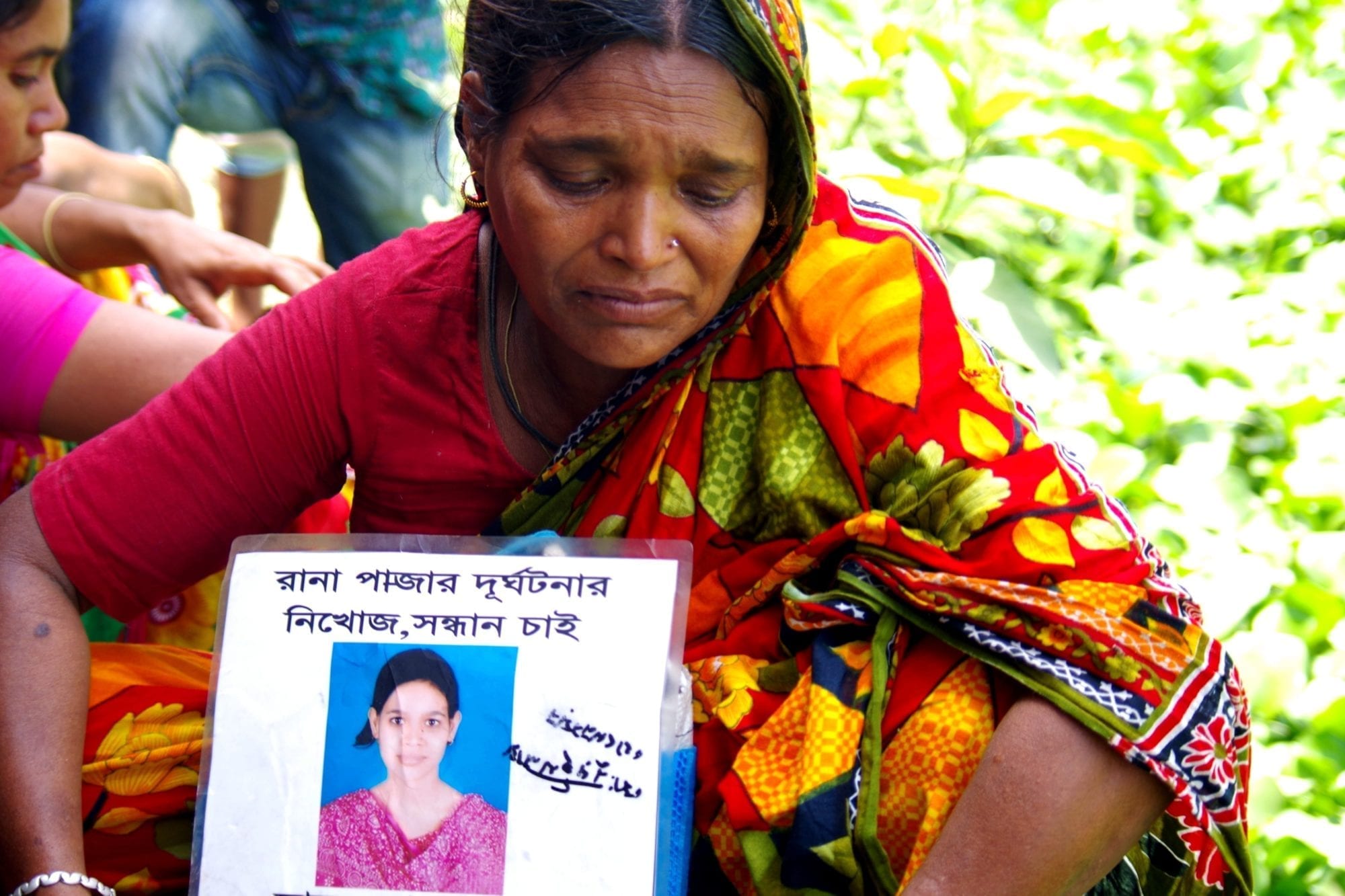Bangladesh courts this week charged 38 people with murder for their role in the collapse of Rana Plaza factory building that killed more than 1,130 garment workers in April 2013.
Solidarity Center Asia Region Director Tim Ryan calls the move “a much-delayed step in the right direction,” but adds:
“Over the past three years, the Bangladesh government has approved fewer and fewer union registration applications. Through their unions, workers are able to speak out freely about safety and health concerns at their worksites and prevent horrible tragedies like Rana Plaza. Limiting workers from forming unions puts workers’ safety at risk.”
In 2015, the Bangladesh government rejected 73 percent of union registration applications, according to data compiled by Solidarity Center staff in Dhaka, the capital.
Arim ul-Haq Amin, president of the National Garment Workers Federation, told Australia-based ABC news that he is disappointed it took so long for perpetrators to be held accountable. He called on multinational companies and garment brands to take responsibility for worker safety.
Some brands stepped up after international outrage over the 2013 Rana Plaza and the 2012 Tazreen Fashions Ltd., factory fire prompted creation of the Bangladesh Fire and Building Safety Accord, a legally binding agreement in which nearly 200 corporate clothing brands and trade unions are supporting garment factory inspections and repairs to ensure safe workplaces. Dozens of garment factories have been closed for safety violations and pressing safety issues addressed.
Many of the 2,000 survivors of the Rana Plaza, and families of those who perished, say they received little or no compensation following the building collapse. Many survivors suffered injuries so severe they are unable to work, and without sufficient compensation, are unable to support themselves and their families.

